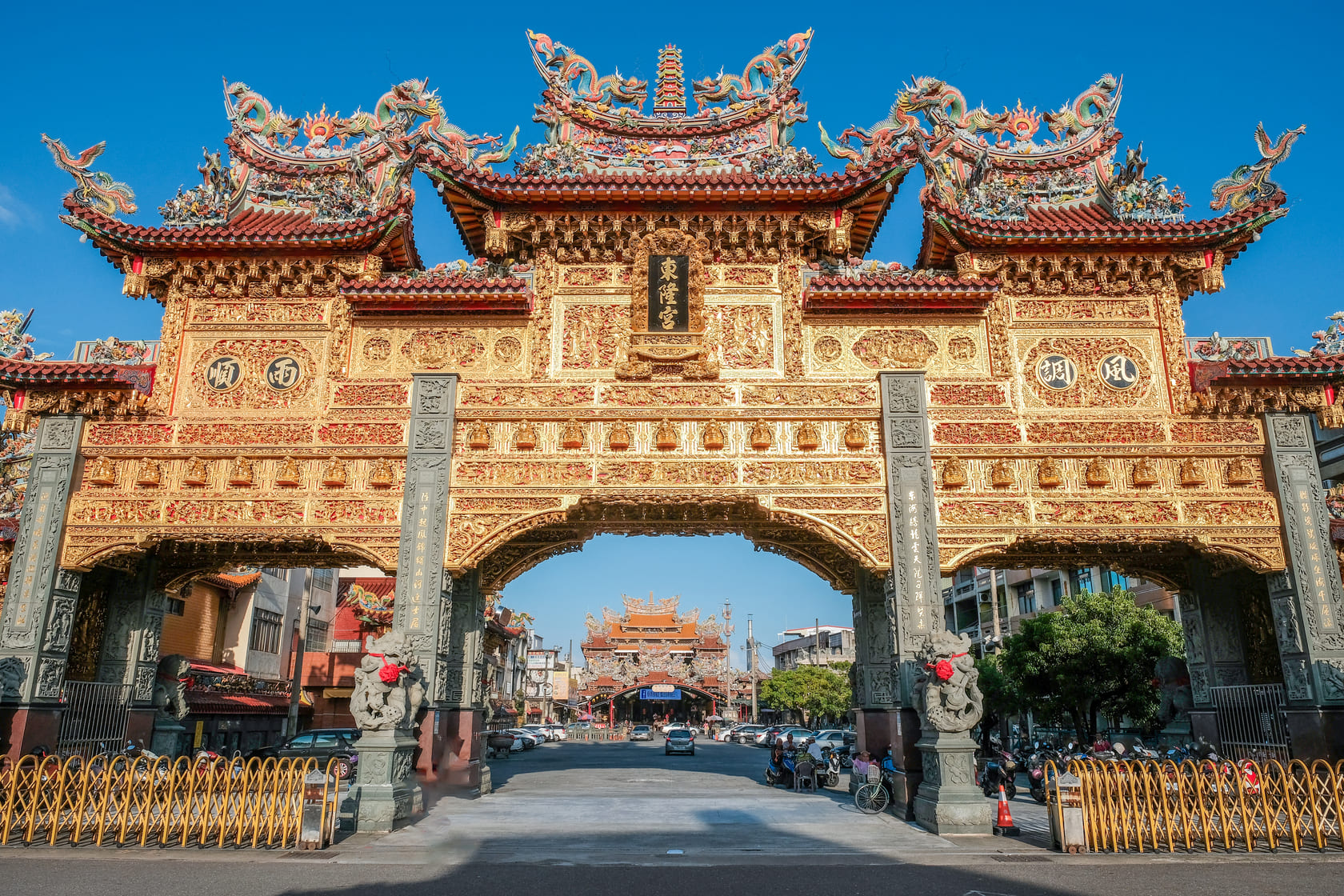Donglong Temple Introduction
Donglong Temple, Chaolong Temple, and Fu'an Temple are the three famous temples in Donggang, each dedicated to its own main deity. Among them, the deity of Donglong Temple, Wang Ye, holds significant spiritual importance for the people of Donggang and is closely linked to the development of the local culture and customs. Wang Ye, also known as "Qiansui," has various legends surrounding his origin. According to tradition, he was Wen Hong, who served as a protector during the reign of Emperor Taizong of the Tang Dynasty and sacrificed himself at sea. In folk customs, Wang Ye is revered as both the god of the sea and the god of plague, and is recognized by the Jade Emperor, tasked with patrolling the heavens. Legend has it that every three years, Wang Ye returns to Donggang, giving rise to the "Donggang Wang Ye Peace Festival," which takes place every three years. To welcome his return, nearly all the residents of Donggang are mobilized, following ancient methods to create intricately crafted and decorated "Wang Jiao/Wang Boat" for the eight-day festival, which includes welcoming Wang Ye, processions, feasting in his honor, and sending him off. Throughout Donggang, one can witness awe-inspiring ceremonies, lively festivities, the deafening sound of firecrackers, and devout worshippers. If you have the chance to visit Donggang during the "Donggang Wang Ye Peace Festival," be sure to pause and participate in the grand celebration to experience the local reverence for Wang Ye and the cultural passion of the community. The main deity of Donglong Temple, Wang Ye, is surnamed Wen, named Hong, and styled Dexiu. He was born during the Sui Dynasty and hailed from Baima Alley in Licheng County, Jinan Prefecture, Shandong Province. During the Zhen Guan era of the Tang Dynasty, Emperor Li Shimin traveled incognito and faced danger, and Wen Hong sacrificed himself to save him, earning the emperor's gratitude and being awarded the title of Jinshi. Among the thirty-six individuals who saved the emperor, all were granted the title of Jinshi. At that time, the local bandits were rampant, causing great suffering among the people, and the thirty-six Jinshi led troops to eradicate them. Wen Hong was a brilliant strategist, attacking the bandits' lair directly, and tens of thousands of rebels surrendered, bringing peace to the nation. Wen Hong returned to the court and was honored with commendations and granted the title of Wang Ye. In a time of peace, the thirty-six Jinshi were ordered to tour the country and promote the virtues of the Tang Dynasty. During one of their inspections by sea, they unfortunately suffered misfortune at sea, and all thirty-six perished. Upon learning of this tragedy, the Zhen Guan Emperor, in his grief over the loss of his loyal subjects, began to believe in their deification and posthumously awarded them the title of "代天巡狩" (Patrolling on Behalf of Heaven), ordering the establishment of temples across the nation for annual rituals in their honor. He decreed that their incense would eternally enjoy the offerings of the people, and ordered the construction of a grand vessel named “Wang Boat,” which would carry the deities of Wang Ye and his sworn brothers, to be sent out to sea after the ceremonial rites. The royal decree inscribed on the boat reads "遊府吃府,遊縣吃縣," announcing nationwide that wherever the Wang Boat goes, the common people and officials should prepare offerings, including slaughtering pigs and sheep, to pay respects to Wang Ye's spirit in heaven. (Image and text provided by Donglong Temple)
 A view inside Donglong Temple
A view inside Donglong Temple
 Donglong Temple Golden Archway
Donglong Temple Golden Archway


































